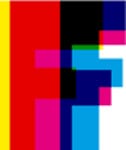 From Chris Heighton: Frequency 2013 – Lincoln, 18th to 26th October 2013. You are invited to get involved in Lincoln’s celebration of digital arts and cultures. Where – Zing, LPAC Café-Bar, When – Monday 29th April, 6 – 7.30pm. RSVP: cheighton@lincoln.ac.uk – no later than Monday 22nd April
From Chris Heighton: Frequency 2013 – Lincoln, 18th to 26th October 2013. You are invited to get involved in Lincoln’s celebration of digital arts and cultures. Where – Zing, LPAC Café-Bar, When – Monday 29th April, 6 – 7.30pm. RSVP: cheighton@lincoln.ac.uk – no later than Monday 22nd April
Frequency 2013 welcomes projects, debates and artworks that explore the theme of Revolution in all its guises and contexts. The Festival serves as a platform and catalyst for provocative projects and activities that will reach across and beyond the city of Lincoln, fuelling expression and debate amongst the widest range of groups.
Branding materials will be available and events / projects may be promoted as part of the Festival.
The Frequency Festival of Digital Culture in Lincoln is a platform for the celebration of arts, culture, technology, commerce and social interconnectivity through exhibition, creative collision and debate. The Festival aims to generate new connections between groups from within and beyond our incredible city, renowned for its juxtaposition of medieval splendour with imagination and innovation. Think Boole, Newton, Banks, Tennyson, Marriner …
Frequency 2013 will explore the concept of R/evolution; from the local to global, the individual to the collective, environmental to political, the social, personal, cultural and economic. Consider the impact of the Digital Revolution. Imagine the internet in the hands of the Situationists; the Cultural Revolution of Paris, May ’68, amplified by the digital realm. What dreams might have come from La Revolution Cyber-Surrealiste?
The internet’s international interconnectivity is the engine of a Do-it-Yourself Punk Ethos writ large – a global community of artists, writers, musicians, filmmakers and their audiences communicating, collaborating and creating new work outside of the control of the traditional gatekeepers to culture. The rise in Crowd-funding heralds Web 3.0: user- commissioned content.
What are we to make of this? What does Revolution mean to you? How can we activate change, and how do art and culture help us articulate and express the dimensions and impact of change? To what extent can audiences, users and artists determine the future direction of innovation and cultural evolution? Where does technology fit in? Is this a bright new digital future or a back to analogue retrovolution?
Chris Heighton, Arts Partnership Development Manager, College of Arts, University of Lincoln, 01522 837030
